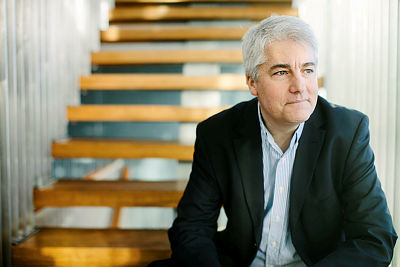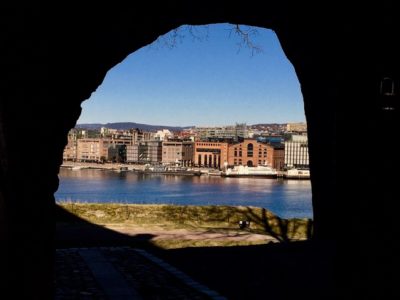Even though they had to swap cherished Easter holidays in the mountains for a lone cycle tour in town, and may even lose their jobs, an overwhelming majority of Norwegians support the government’s shut-down measures to tackle the Corona virus. Those left arguing are mostly economists and some wealthy businessmen, who claim the measures will ruin Norway’s strong economy forever.

A survey released just as the Easter holidays began showed that fully 72 percent of Norwegians support Prime Minister Erna Solberg’s government’s strict measures that shut down much of the country a month ago and were later extended. Only 4 percent think the measures are too strict, according to the survey conducted by analysis institute Sentio for newspaper Klassekampen.
Another 21 percent think the measures aren’t strict enough, even though they have cancelled all events attracting crowds and shut down schools, offices, museums, cinemas, restaurants, cafés, bars and thousands of businesses involving close customer contact. Travel and tourism have come to a screeching halt, and even a quick drive over the border to neighboring Sweden or another municipality within Norway can result in 14 days of quarantine.
The government announced plans just before the Easter holidays to ease up on some of the measures but many will remain in place. There’s nonetheless “massive support for the measures, and many want to go even further,” Arve Østgaard of Sentio told Klassekampen, which is itself not known for supporting Solberg’s conservative coalition government policies. Østgaard added that right now, it’s really “rally around the flag” times in Norway.
Need to maintain confidence
Østgaard noted that it’s not unusual for the public to support their leaders in times of crisis. Jarle Løwe Sørensen, leader of a center for security, crisis management and preparedness at the University of Southeast Norway, also noted that “in Norway, we have a high degree of confidence between the public and the authorities that’s been built up over many years.” People don’t fear the state or government in Norway, added Professor Emeritus Bernt Hagtvet at the University of Oslo, because they’re viewed as legitimate.
Hagtvet pointed out how the government and the opposition parties in Parliament have also worked well together throughout the Corona crisis. He cautioned, however, that both sides must be careful not to challenge the public’s confidence. Questions have been raised, for example, over the government’s declared need for emergency powers, and both the Reds and Greens parties were excluded from negotiations over various measures and emergency relief packages. “The government has to act carefully, and pay attention to any sources of a lack of confidence,” Hagtvet told Klassekampen.

The most notable source continues to come from quarreling economists, who fear the government’s measures are strangling the economy, can lead not only to a recession but even a depression, and may cause permanent damage even to a strong economy like Norway’s.
Their criticism and concern comes in the midst of recent newspaper editorials that are unusually praising the government’s efforts. “Well done,” headlined the editorial in the left-leaning newspaper Dagsavisen just after Solberg could announce the “gradual” easing of some measures because “the Corona epidemic was under control” and hospitalization rates have declined. “The strategy is succeeding,” declared Dagsavisen. Even though ongoing caution and restrictions are needed, “the political and professional health authorities deserve praise.”
Newspaper Aftenposten went so far as to call the measures and relief packages “important, spectacular and historic,” suggesting that Norwegians should “open their windows and applaud” the authorities. Even the Labour Party-led city government in Oslo has said it will now go along with the government’s measures to gradually reopen day care centers and schools later this month.
Economists’ doomsday scenarios
Economists at Norway’s leading banks and not least the national employers’ organization NHO aren’t nearly as jubilant. While NHO sought and expressed gratitude for the cash support for businesses and enhanced unemployment benefits for laid-off workers, its chief economist Øystein Dørum is warning that even an “optimistic” scenario indicates that “economic disaster” lies ahead.
Newspaper Dagens Næringsliv (DN) reports how NHO has drastically altered its own economic outlook in the past month. After predicting more growth at the end of February of 2.2 percent in the gross national product of the mainland economy (excluding offshore oil), NHO’s economists now see a decline of 8.7 percent compared to 2019.
That would be the largest decline since 1940, when Norway was occupied at the beginning of World War II and gross national product fell by 9.2 percent.

“Ideally this crisis is different because it’s the authorities who have started it (with the shut-down measures), and the authorities who can end it,” Dørum told DN. “If the infection-control measures are limited over time, the economic crisis will be, too. But the economy isn’t a machine where you can just redirect a wheel and everything falls into place again. Expectations and behaviour in the private sector mean a lot.”
Kari Due-Andresen, chief economist at Handelsbanken Capital Markets in Oslo who’s been consistently warning of at least a recession, said she wasn’t surprised at all by NHO’s gloomy numbers and predictions. She called them “probable,” while Kjetil Olsen at Nordea Markets predicts a decline in gross national product of a still-alarming 6.2 percent this year. Roger Bjørnstad, chief economist for trade union confederation LO, expects a decline of 6.5 percent.
Kjersti Haugland, who succeeded Dørum as chief economist at Norway’s biggest bank, DNB, thinks his numbers are “on the pessimistic side” but “well within” a “reasonable” outcome of the shutdown. Around 400,000 Norwegians had already applied for unemployment benefits before the Easter holidays began, meaning the unemployment rate is already exceeding 15 percent. Haugland thinks GNP will fall by around 4-5 percent.

The gloomy predictions have prompted Due-Andresen to claim that the government’s strategy “will crack the Norwegian economy” and cause “permanent damage.” Economics professor Karen Helene Ulltveit-Moe at the University of Oslo and one of Norway’s leading business and tax lawyers, Bettina Banoun of Oslo law firm Wiersholm, agreed, claiming in a commentary in DN that “we’ve gone into war with the wrong strategy.” They claim the government went much further with its containment strategy than healthy officials deemed necessary.
“We need a strategy that won’t force into isolation from the rest of the world or leave society in ruins,” they wrote when “only” 300,000 Norwegians needed unemployment benefits. “People are losing their basis for making a living … we’re all willing to go to war, but we must be convinced that the strategy chosen is rational and professionally grounded.”
Comments like that defy the results of the latest public opinion poll. The economists don’t have as much confidence as the public at large that a strategy shift limiting the spread of Corona infection to halting the epidemic and than controlling it is correct. They argue the latter can take up to two years, or until a vaccine is found, and the negative consequences of that are simply to large.
‘Uncertainty is just so great…’
Solberg’s government has since eased up, with the gradual opening of schools and even allowing Norwegians to visit their holiday homes again. That may cheer wealthy investors and businessmen like Christian Ringnes, heir to a brewery fortune who’s built upon it to become a real estate tycoon in Oslo. He’s been bitterly complaining about the shutdown and calls for commercial leasing tenants to be granted some slack on paying the rent. Some businesses like hair salons that lost all their income overnight will be able to start reopening by the end of the month, as long as they can meet infection control requirements.
The partial easing of the shutdown can also appease economists like Svein Harald Øygard, who also has argued strongly against a shutdown that’s “causing the century’s greatest economic catastrophe without it helping,” but it’s unclear whether the government will re-open quickly or carefully enough.
“The uncertainty is just so great regarding what the world will look like when this is over,” economics professor Hilde C Bjørnland at the Norwegian business school BI told DN last week. She worries that Norway’s important oil market will also “be destroyed forever” and that the virus will continue to weaken the Norwegian economy and politicians’ ability to act.

Others firmly support the government’s strict measures, with four economic researchers at state statistics bureau SSB (Statistics Norway) claiming that the gains from saving lives will outweigh the current economic costs in the long run. Newspaper Aftenposten reported how they have generated the first collective social-economic analysis of the fight against the Corona virus.
It attempts to balance the value of saved lives against the costs of continuing to close down large portions of the Norwegian economy. “Our conclusion is that the results support the use of strict measures to try to eradicate the virus in the space of a few months,” researchers Geir Bjertnæs and Erling Holmøy told Aftenposten. They also note that a vaccine against Corona virus will “probably” be available during the next two years.
Along with SSB colleagues Roger Hammersland and Birger Strøm, they think the economic shutdown is worth the price. Their work was not part of an official SSB project, they noted, but all four claimed they “stand fully and responsibly for its content as private persons.”
Dag Svanæs, a professor and IT expert at the Norwegian University of Science and Technology (NTNU) in Trondheim, also backs not only the shutdown but has requested a full “lockdown” that would further force Norwegians to simply stay at home. He told Klassekampen that “those who wanted to shut down society will emerge as the real heroes” because infection can increase exponentially again, overburden hospitals and result in massive deaths.
‘Life and health most important’
Prime Minister Solberg, faced with having to juggle all the recommendations from both health and economic experts, remains clear that measures so far have been the strictest imposed on Norwegians since World War II, but that they’re also necessary. They’re not as strict as in many other countries, where both curfew and lock-down measures have been imposed.
“The most important thing now is to beat down the virus, at the same time trying to ensure that folks will have a job to go back to when this crisis is over,” Solberg wrote herself in DN before easing measures last week. She continues to stress that “life and health are the most important,” and the economy next.
As she hangs on to the general public’s support, Solberg could be enouraged by the editorial writers, who also urged against easing up too soon and “letting down our guard” to avoid allowing the virus a relapse. “And we must continue to be glad we live in a country that’s so rich in resources, but also in wisdom,” wrote Dagsavisen. Commentator Arne Strand, normally one of Solberg’s biggest critics, hailed her for maintaining a strategy “unmatched by any other country’s in its success. Now it’s up to Norwegians to hold up, and keep their distance.
“Let the economists quarrel. Human life can’t be measured in money.”
newsinenglish.no/Nina Berglund

